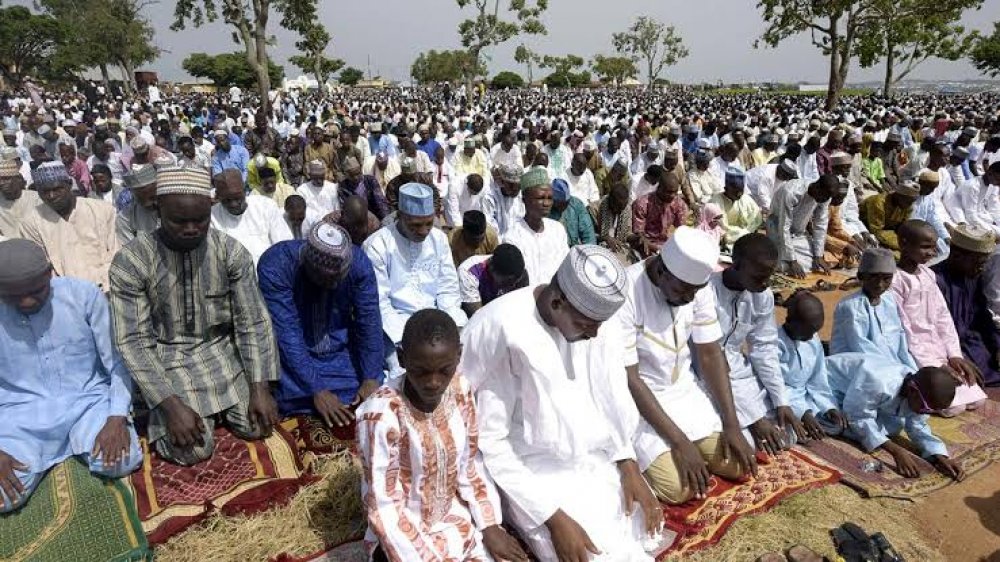Other Pages
- Opinion Poll
- About Us
- Send Your Story
- Contact Us
- Newsletter
- Privacy Policy
- Terms and Conditions

Muslim faithful in Nigeria, like every other part of the world, celebrate the annual festival of breaking the fast in a grand style. Sadly, the Coronavirus pandemic may hinder such a glamorous celebration this year.
It is barely four days to the end of the Ramadan fasting, one of the major pillars of Islam, and the Eid al-Fitr celebration is fast approaching.
The celebration, which comes with a national holiday to mark the end of the 30-day fasting, will be done on a low-key considering the cessation of movement across Nigerian states, AllNews reports.
Lockdown extension
Several Nigerians anticipated freedom after weeks of lockdown and curfews but President Muhammadu Buhari extended the cessation of movements by two weeks on Monday.

According to the Secretary to the Government of the Federation (SGF), Boss Mustapha, Mr Buhari approved two weeks extension of the ongoing movement restrictions across Nigeria because the country is “not yet ready for full opening of the economy,” an official said.
Mr Mustapha who doubles as the Chairman of the Presidential Task Force on COVID-19 stated this at the daily briefing of the PTF on Monday evening.
“Ladies and gentlemen, the reality is that in spite of the modest progress made, Nigeria is not yet ready for full opening of the economy and tough decisions have to be taken for the good of the greater majority,” Mr Mustapha said.
“Any relaxation will only portend grave danger for our populace.
“Advisedly, the current phase of eased restriction will be maintained for another two weeks during which stricter enforcement and persuasion measures will be pursued," he noted.
This online medium reports that, not less than 10 weeks after the first COVID-19 index case was discovered, the country has so far recorded 6175 cases of the infection across the FCT and 34 states.
No doubt, the COVID-19 pandemic has shutdown countries and has greatly reeled the global economy.
In this analysis, AllNews examines the effects of the lockdown on the forthcoming Eid-al-Fitri celebration.
People out of job...
The disruption to the world’s economies caused by the Covid-19 pandemic is expected to wipe out 6.7% of working hours globally in the second quarter of this year – the equivalent of 195 million jobs worldwide, according to the International Labour Organization (ILO).
ILO in a recent report explained that more than four-fifths of workers globally live in countries affected by full or partial lockdown measures.
Nevertheless, as the festivities require, many purchase new clothing and accessories to flaunt on the day of this religious ceremony.
However, due to the fact that a significant portion of the population has either lost their jobs, had a cut in pay, or had their businesses shut down, many may not be buoyant to spend on the luxury displayed on this year's occasion.
This will, in turn, affect sellers of these luxury items who may be disappointed at the rate of patronage at this period.
Food scarcity
In the last two decades, Nigeria has been battling food insecurity. According to the World Bank's development indicators, Nigeria's food insecurity is on the rise with almost 8 per cent of the population found to be undernourished in 2015, compared with 6 per cent in 2007.

Experts have however predicted a sharp rise in the figures considering the effects of the lockdown on farming activities and the challenges of transporting farm produce.
“Millions of Nigerians observing the COVID-19 lockdown lack the food and income that their families need to survive,” said Anietie Ewang, Nigeria researcher at Human Rights Watch.
“The government needs to combine public health measures with efforts to prevent the pandemic from destroying the lives and livelihoods of society’s poorest and most vulnerable people," He added.
This means that, ahead of the Eid al-Fitr celebration, food items may not be excessively available in the markets and the few ones may be sold for exorbitant prices.
Ban on religious gatherings
One of the activities Muslims do not want to miss on such a day is Eid, the congregational prayer held at various praying grounds.
The ban on religious gatherings will, however, debar any congregational meeting at this period in order to prevent the spread of the virus.
Recall that, for weeks now, mosques worldwide have taken a series of measures aimed at curbing the spread of the new coronavirus.

As an increasing number of countries announced lockdowns, so did mosques, with many closing their doors completely and others banning congregations and using their speakers to remind people to stay at home.
More so, worshippers have not been allowed to enter Mecca's Grand Mosque nor the Prophet's Mosque in Medinah, the two main mosques for Muslims, since Saudi authorities suspended prayers on March 19 in an effort to combat the spread of the virus.
Sequel to the lockdown, many will have to pray Eid in their respective houses. According to Riyadh Xpresss, a website dedicated to providing Islamic teachings, it is permissible to pray Eid at home with families provided some guidelines are followed.
0 Comment(s)